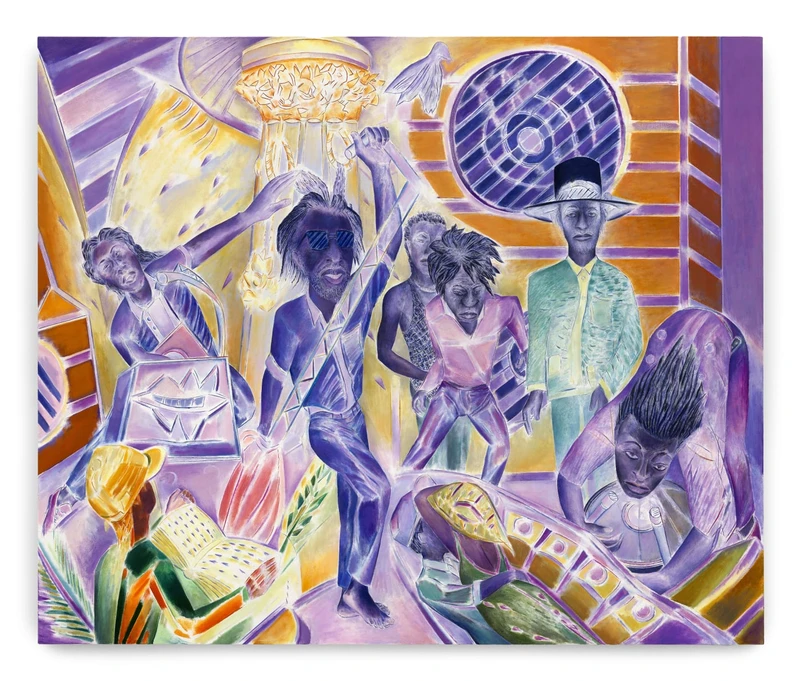Denzil Forrester: With Q
10 Mar-8 Apr 2023


Stephen Friedman Gallery is pleased to present an exhibition by Grenada-born, British artist Denzil Forrester. The show includes new paintings and a separate survey of works on paper from the past forty years.
Forrester is known for his vibrant paintings that immortalise the dynamic energy of London’s reggae and dub nightclub scene during the early 1980s. In his new work, the artist juxtaposes colourful depictions of urban dancehalls with vivid recollections from his childhood and themes of social injustice.
One of the largest paintings is rendered in a more abstract style and exudes a frenetic energy. ‘Surge’ (2022) began in the dub dancehalls of Kingston, Jamaica where the artist spent a residency in 2019, sketching in-situ at the city’s clubs. Back in his Cornwall studio, Forrester transposed his frenetic drawings of the revellers into painterly compositions, using graphic, staccato brushstrokes to emulate the pulse of the music. Bathed in a wash of blue, the painting is imbued with a hallucinatory atmosphere which, in Forrester’s words, reflects the power of the DJ as a “witch doctor” unifying the crowd. The figures’ movements are broken up like shards of light bouncing off a disco ball, revealing the influence of German Expressionism and Cubism on the artist’s practice.
Forrester's works are significant in their rich documentation of London’s West Indian community during the 1980s, explored through the lens of his own childhood and adolescence. ‘Eula and sons’ (2022) is an autobiographical diorama depicting Forrester’s family sewing bags to earn money when they first moved to Hackney over forty years ago.
The artist distorts the composition by toying with perspective, resulting in a sweeping movement that draws the viewer through the scene. A speaker in the top left corner references the impact music has had on Forrester’s life since his early youth. Peter Doig notes that such “dreamlike” works “emerge as much from [the artist’s] imagination as from his studies of real life” and possess “a subtlety and form that has perhaps come about because he is reflecting upon his past."
Forrester continues to reflect on Black British culture by featuring contemporary examples of racial injustice. ‘Q’ (2022) directly references a racist incident in the UK involving a fifteen-year-old Black schoolgirl who was subjected to a strip-search by police in 2020. Forrester paints ‘Child Q’ with a sense of reverence, prominently positioning her in the centre of an empty nightclub. The figure’s hands are placed delicately one on top of the other and her clothes lay scattered on the floor. The foreboding presence of three policemen suggests a poignant parallel with one of Forrester’s most well-known works, ‘Three Wicked Men’ (1982) – now in the collection of Tate, UK – which was prompted by the death of his friend Winston Rose whilst in police custody.
Forrester’s drawing practice began in earnest in the early 80s when he first took out his sketchbook in the nightclubs that he frequented and drew at the bar – mostly in semi-darkness – with hurried, expressive marks of pastel and charcoal. Each sketch would be dictated by the length of the record, roughly four minutes long, with each subsequent drawing beginning and ending in sync with the changing soundtrack.